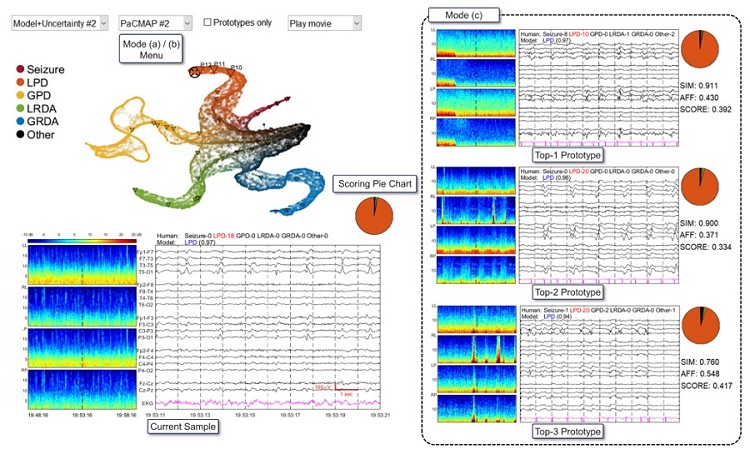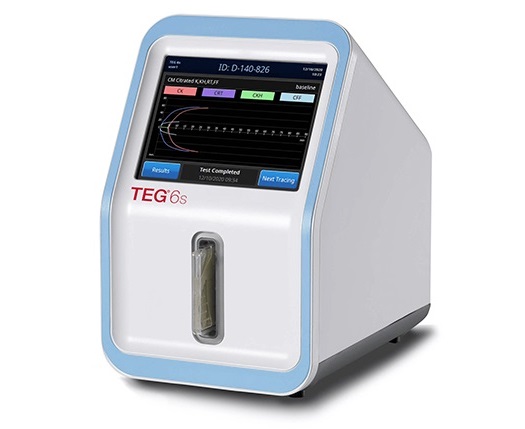Chemotherapy Followed By Novel Surgery Can Help Safely Remove Inoperable Pancreatic Tumors
|
By HospiMedica International staff writers Posted on 15 Mar 2024 |
.jpg)
Pancreatic cancer makes up about 3% of all cancers in the United States, yet it ranks among the most lethal. Often, it does not show symptoms until it has significantly progressed or spread throughout the body, leading to late detection and dismal survival rates. Only 13% of those diagnosed with pancreatic cancer live five years or more. Patients with locally advanced pancreatic cancer, which represents a third of all cases, typically have a life expectancy of around one year. Surgery is generally the best treatment for cancers that haven't metastasized, but it's usually not an option for pancreatic tumors affecting nearby blood vessels due to the risk of damaging these vessels and disrupting blood flow to vital organs, potentially causing severe complications or death. Thus, chemotherapy and/or radiation, which are only marginally effective against pancreatic cancer cells, have been the primary treatments available for patients with advanced stages of the disease.
Now, a team of surgeons from Keck Medicine of USC (Los Angeles, CA, USA) is conducting a clinical trial that offers a ray of hope for those considered ineligible for surgery due to the advanced stage of their pancreatic cancer. This trial will evaluate the safety and efficacy of a round of chemotherapy followed by an innovative surgical approach to remove the cancer, even when it has spread to or is located near the vital blood vessels surrounding the pancreas. This approach involves cutting-edge surgical techniques developed by Keck Medicine surgeons for safely excising tumors attached to arteries.
Participants in the trial will first receive chemotherapy to reduce the tumor size. After completing chemotherapy, they will undergo a laparoscopic assessment to ascertain the tumor's size and position, followed by the surgical removal of the tumor and the resection and reconstruction of the affected blood vessels. The trial includes regular follow-ups with the patients every three months for the first year after the surgery and then every six months for the next two years. It will also investigate whether certain biomarkers, like the tumor's DNA, and demographic factors, such as age and gender, influence patient outcomes. The goal is to enroll 20 patients with locally advanced pancreatic cancer showing evidence of arterial involvement by their tumors.
“Usually, these types of tumors cannot be safely removed with surgery because of the risk of damaging the blood vessels, which supply blood to the stomach, liver and other abdominal organs. However, due to recent advancements by Keck Medicine surgeons, we believe that patients with locally advanced cancer can be candidates for successful surgery, which could significantly improve outcomes,” said Steven Grossman, MD, PhD, co-lead investigator of the study.
Related Links:
Keck Medicine of USC
Latest Surgical Techniques News
- Study Warns Against Dangerous Smoke Levels Produced During Endoscopic Gastrointestinal Procedures
- New Hydrogel Sealant Effective at Sealing Dural Defects and Preventing Postoperative Adhesion
- MRI-Guided Multi-Stage Robotic Positioner Enhances Stereotactic Neurosurgery Precision

- AR Visualization System Improves Surgeons’ Capabilities and Spatial Awareness
- New Adhesive Hydrogel Coatings to Prolong Lifespan of Pacemakers and Medical Implants
- Maneuvering System Empowers Surgeons with Enhanced Control during Laparoscopic Procedures
- New Two-Dimensional Material Paves Way for Safer, More Effective Implantable Medical Devices
- Portable MRI Compatible Surgical Robot Improves Patients Outcomes for Neurosurgery
- World-First Device to Remove Bacterial Biofilm Inside Endoscopes
- Minimally Invasive Imaging Technique to Revolutionize Ureteral Injury Detection
- Modular Communicative Leadless ICD Proves Safe and Exceeds Performance Expectations
- AR Surgical Technology Translates Complex 2D Medical Imaging to Enhance Accuracy
- Miniaturized Snake-Like Probe Images Cerebral Arteries From Within
- Miniaturized Implantable Multi-Sensors Device to Monitor Vessels Health
- Tiny Robots Made Out Of Carbon Could Conduct Colonoscopy, Pelvic Exam or Blood Test
- Miniaturized Ultrasonic Scalpel Enables Faster and Safer Robotic-Assisted Surgery
Channels
Artificial Intelligence
view channel
AI-Powered Algorithm to Revolutionize Detection of Atrial Fibrillation
Atrial fibrillation (AFib), a condition characterized by an irregular and often rapid heart rate, is linked to increased risks of stroke and heart failure. This is because the irregular heartbeat in AFib... Read more
AI Diagnostic Tool Accurately Detects Valvular Disorders Often Missed by Doctors
Doctors generally use stethoscopes to listen for the characteristic lub-dub sounds made by heart valves opening and closing. They also listen for less prominent sounds that indicate problems with these valves.... Read moreCritical Care
view channel
AI Doubles Medical Professionals’ Accuracy in Reading EEG Charts of ICU Patients
Electroencephalography (EEG) readings are crucial for detecting when unconscious patients may be experiencing or are at risk of seizures. EEGs involve placing small sensors on the scalp to measure the... Read moreFlexible Device Enables Sweat Gland Stimulation and Simultaneous Biosensing
Human sweat is rich in biomarkers that can be used to monitor a range of health conditions, from diabetes to genetic disorders. Many users prefer sweat sampling over blood collection because it is painless.... Read more
WHO Publishes First Global Guidelines to Reduce Bloodstream Infections from Catheter Use
Up to 70% of all inpatients require a catheter, specifically a peripherally inserted catheter (PIVC), at some point during their hospital stay. Patients who receive treatments via catheters are particularly... Read morePatient Care
view channelFirst-Of-Its-Kind Portable Germicidal Light Technology Disinfects High-Touch Clinical Surfaces in Seconds
Reducing healthcare-acquired infections (HAIs) remains a pressing issue within global healthcare systems. In the United States alone, 1.7 million patients contract HAIs annually, leading to approximately... Read more
Surgical Capacity Optimization Solution Helps Hospitals Boost OR Utilization
An innovative solution has the capability to transform surgical capacity utilization by targeting the root cause of surgical block time inefficiencies. Fujitsu Limited’s (Tokyo, Japan) Surgical Capacity... Read more
Game-Changing Innovation in Surgical Instrument Sterilization Significantly Improves OR Throughput
A groundbreaking innovation enables hospitals to significantly improve instrument processing time and throughput in operating rooms (ORs) and sterile processing departments. Turbett Surgical, Inc.... Read moreHealth IT
view channel
Machine Learning Model Improves Mortality Risk Prediction for Cardiac Surgery Patients
Machine learning algorithms have been deployed to create predictive models in various medical fields, with some demonstrating improved outcomes compared to their standard-of-care counterparts.... Read more
Strategic Collaboration to Develop and Integrate Generative AI into Healthcare
Top industry experts have underscored the immediate requirement for healthcare systems and hospitals to respond to severe cost and margin pressures. Close to half of U.S. hospitals ended 2022 in the red... Read more
AI-Enabled Operating Rooms Solution Helps Hospitals Maximize Utilization and Unlock Capacity
For healthcare organizations, optimizing operating room (OR) utilization during prime time hours is a complex challenge. Surgeons and clinics face difficulties in finding available slots for booking cases,... Read more
AI Predicts Pancreatic Cancer Three Years before Diagnosis from Patients’ Medical Records
Screening for common cancers like breast, cervix, and prostate cancer relies on relatively simple and highly effective techniques, such as mammograms, Pap smears, and blood tests. These methods have revolutionized... Read morePoint of Care
view channel
POCT for Infectious Diseases Delivers Laboratory Equivalent Pathology Results
On-site pathology tests for infectious diseases in rural and remote locations can achieve the same level of reliability and accuracy as those conducted in hospital laboratories, a recent study suggests.... Read more
Cartridge-Based Hemostasis Analyzer System Enables Faster Coagulation Testing
Quickly assessing a patient's total hemostasis status can be critical to influencing clinical outcomes and using blood products. Haemonetics Corporation (Boston, MA, USA) has now obtained 510(k) clearance... Read more
Critical Bleeding Management System to Help Hospitals Further Standardize Viscoelastic Testing
Surgical procedures are often accompanied by significant blood loss and the subsequent high likelihood of the need for allogeneic blood transfusions. These transfusions, while critical, are linked to various... Read moreBusiness
view channel
MEDICA INNOVATION FORUM for the Healthcare Innovations of the Future
By always offering innovations and updating existing program formats, the internationally leading medical trade fair MEDICA in Düsseldorf has been successful for over half a century and always gives its... Read more















